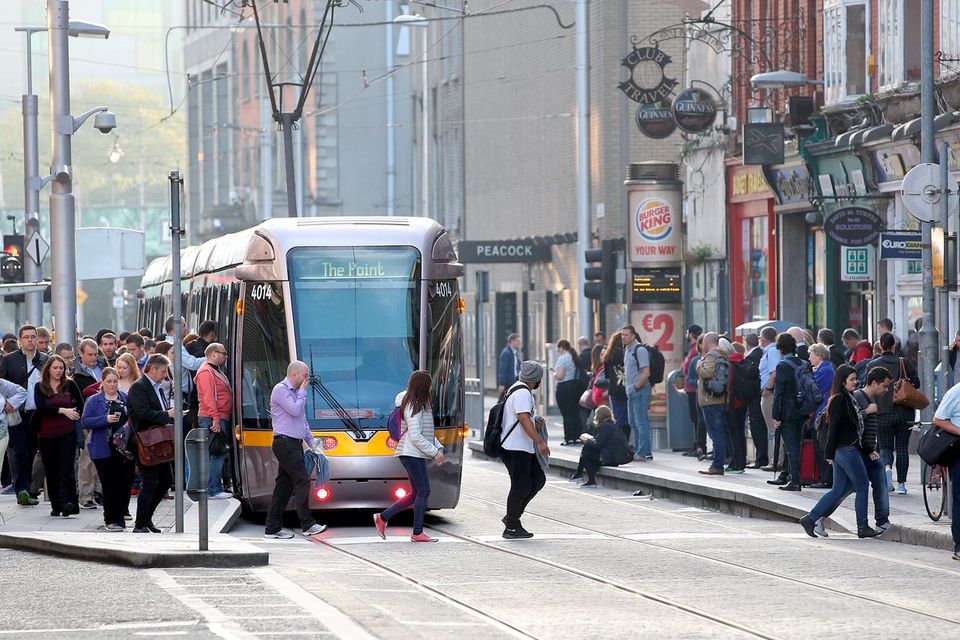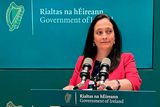Cool heads needed to solve our pay disputes
The Luas strike, followed by the Dublin Bus strike, have set a tone, and we also face similar actions being extended nationwide via disputes in Bus Éireann and Iarnród Éireann Picture: Gerry Mooney
It has been a long and hard road since the banking collapse of autumn 2008 and the total surrender of financial autonomy in November 2010 to the ECB-IMF-EU troika.
Over that eight-year period, pretty much everyone in the Irish nation took a hit. All public sector workers, to their credit, took reductions in pay and conditions with a large element of stoicism. Ireland was spared the pointless and damaging convulsions of public sector strikes and street protests which compounded the difficulties in other European economies.
Claims that our public sector unions lacked backbone are fatuous in the extreme. Those union leaders deserve commendation and gratitude for taking a hard-headed and pragmatic stance. They prevented us suffering a longer and slower recession, despite the hardship and difficult personal stories associated with what happened to us.
Now that we face into calmer and more encouraging economic times, there must be no surprise that public sector workers are seeking remedial action. They want a reversal of cuts and some pay increases after an effective eight-year pay freeze in many jobs.
Public sector unions come to these issues with a great deal of right on their side. But they must also exercise caution here in how they approach these things.
The Luas strike, followed by the Dublin Bus strike, have set a tone, and we also face similar actions being extended nationwide via disputes in Bus Éireann and Iarnród Éireann. The bus strike in the capital has wrought a difficult trading experience for shop owners and shop workers.
These people have also suffered over the past years. We need cool heads and conciliatory attitudes to be brought to bear on these challenges for all of our sakes.
Now Mr Noonan must square Budget circle
We know it was in its way easier when the country had nothing. A fortnight from tomorrow, Finance Minister Michael Noonan will present his sixth Budget. This time, he is responsible but lacking in power. And this time also he has largesse, albeit limited enough, to distribute to a recession-weary nation with some expectations.
As TDs return to Leinster House tomorrow, they face a fraught political term. The assumption that Budget 2017 will pass handily on October 11 may be born of complacency.
Today, already we find a potential backlash centred on hopeful home-buyers who may not benefit from a scheme billed as something which would help people on to the property ladder. First-time buyers have been raising concerns with their local TDs that they will not qualify for the scheme due to be announced in the Budget.
The issue is that Mr Noonan is only back-dating this tax incentive scheme until July of this year. That would exclude people who bought earlier this year and were stuck with harsh Central Bank rules unlikely to change any time soon.
We have learned about a sudden Dublin property price surge in the last three months, rising at rates comparable to those during the boom.
For some, it is good news that an average three-bed semi-detached home has risen above €200,000 for the first time since Ireland emerged from the property crash. For others, it is the end of house-owning dream.
It is a potentially explosive political issue.
Join the Irish Independent WhatsApp channel
Stay up to date with all the latest news















